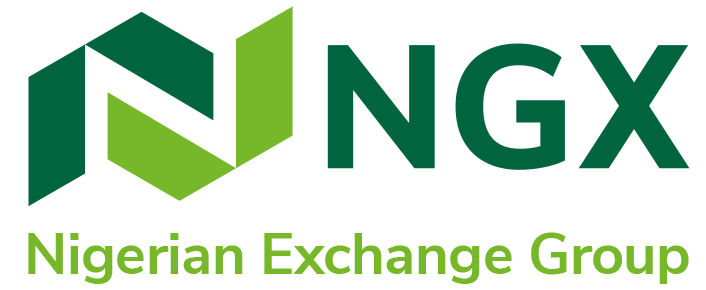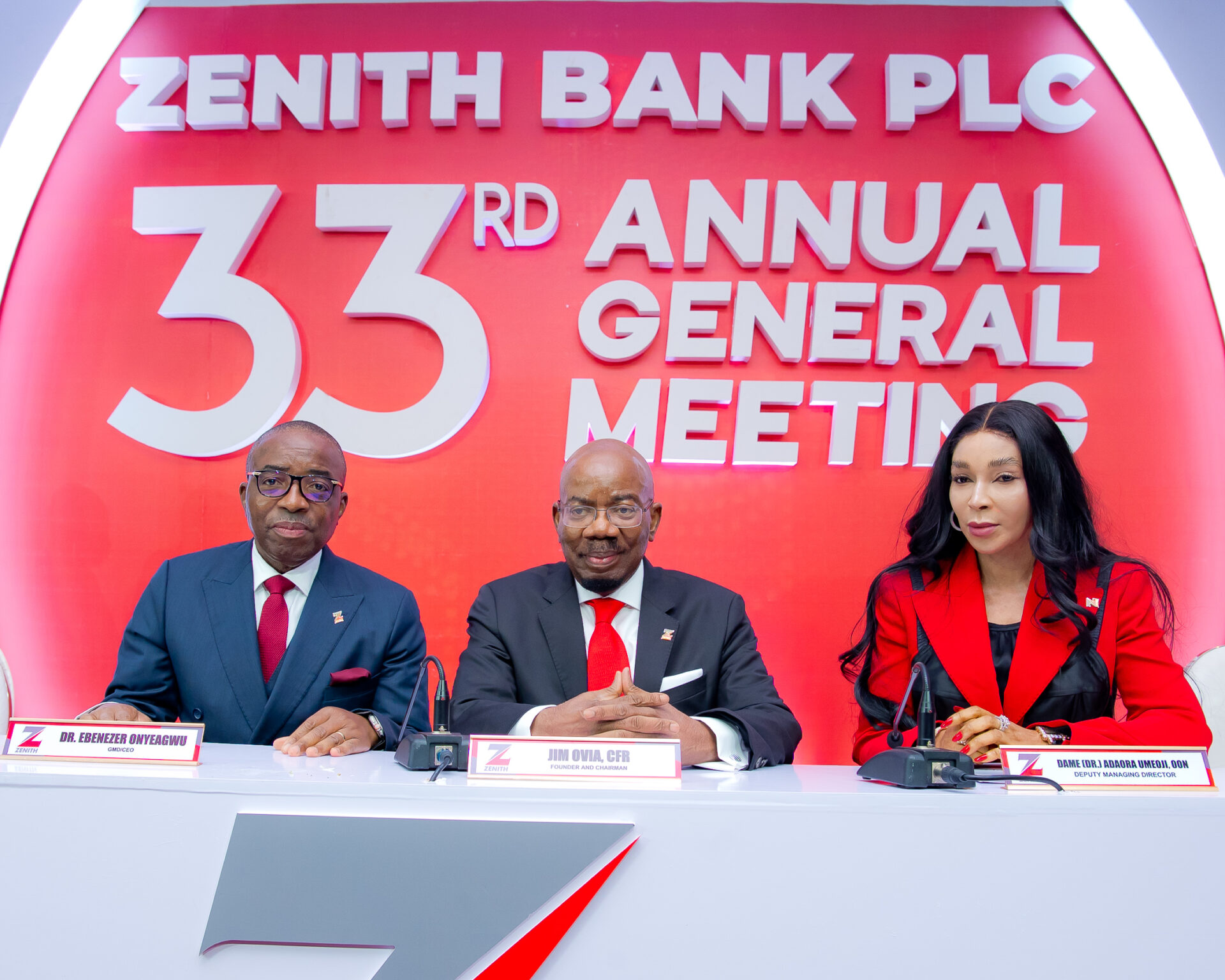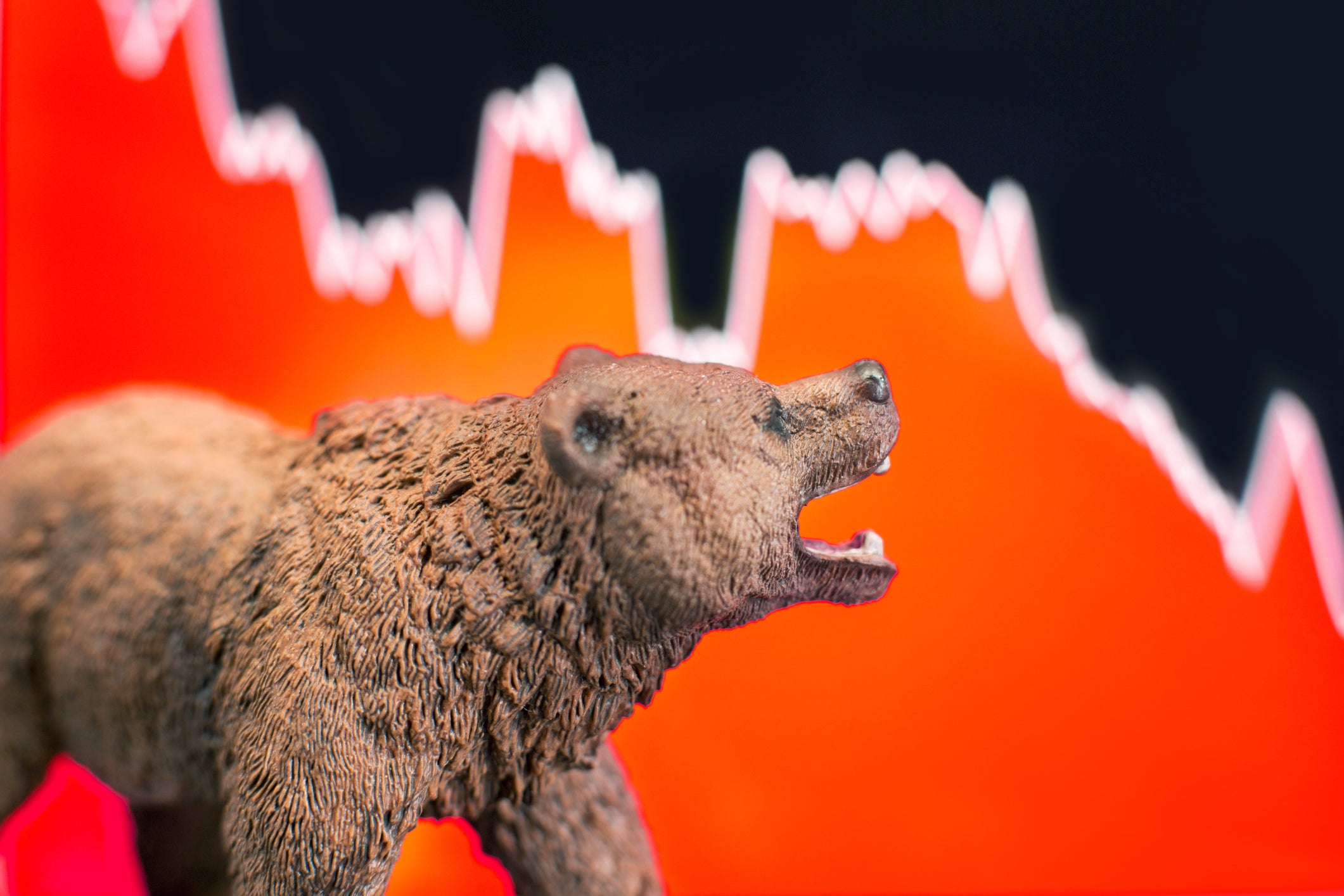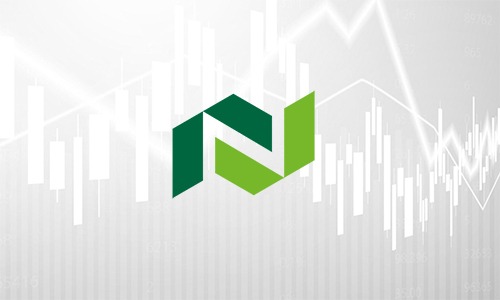Shareholders of Zenith Bank Plc, at the 33rd Annual General Meeting (AGM) held at the Civic Centre, Victoria Island, Lagos, on Wednesday, 8 May 2024, approved the proposed final dividend payment of NGN3.50 per share, bringing the total dividend for the 2023 financial year to NGN4.00 per share, with a total value of NGN125.59 billion, which is the highest dividend payout by any bank.
In his opening statement at the Annual General Meeting, Dr. Jim Ovia, CFR, Founder and Chairman of Zenith Bank Plc, thanked the shareholders for their unflinching support and loyalty to the Zenith brand which has been instrumental to the bank’s consistent superior performance.
The Group Managing Director/Chief Executive Officer, Dr. Ebenezer Onyeagwu, thanked the Founder and Chairman, Jim Ovia, CFR, for his mentorship, which has been instrumental to his success in the last five years as CEO, and for providing the pedestal for the bank’s continued superior performance.
In his words, “As I prepare to pass the baton to Dame (Dr) Adaora Umeoji, OON, I am confident in the bank’s trajectory under her leadership. I would like to express my profound gratitude to our Founder and Chairman, Dr Jim Ovia, CFR, and to the board, shareholders, customers, and staff for their steadfast support throughout my tenure. I earnestly request that you extend the same level of support to my successor. It has been a remarkable journey, and I am immensely proud of what we have accomplished together. As I commence the mandatory regulatory cooling-off period, I am filled with optimism for Zenith Bank’s future, assured that we are on the path to even greater success.”
Speaking on the dividend payout, Mrs. Bisi Bakare, National Coordinator of the Pragmatic Shareholders Association of Nigeria, expressed her delight in the exceptional performance of the bank, as evidenced by the numerous awards received during the 2023 financial year.
She remarked, “We shareholders are very pleased today to receive a final dividend of N3.50 kobo from Zenith Bank. Following an interim dividend of 50 kobo paid last December, the total dividend for the 2023 Annual General Meeting amounts to N4.00— the highest in the banking sector to date. We truly appreciate this and are optimistic that the transition to a Holding Company will bring even greater returns. Zenith Bank’s numerous accolades this year clearly position it as the leading bank in the country. We anticipate that the 2024 AGM, marking the first year as a Holding Company, will be even more promising for Zenith.”
At the AGM, Dr. Faruk Umar, President of the Association of the Rights of Nigerian Shareholders (AARNS), expressed his gratitude to the Chairman for facilitating a seamless succession plan.
He stated, “The bank has performed exceptionally well, particularly in terms of succession planning. It’s encouraging to see the new Managing Director promoted from within, reinforcing our belief in the bank’s leadership development. This internal promotion strategy motivates our staff, giving them confidence that they can aspire to the highest levels within the bank.”
Chief Timothy Adesiyan, President of the Shareholders Solidarity Association of Nigeria, praised the Chairman and Management of Zenith Bank for their consistent delivery of value to shareholders.
He noted, “The bank’s rapid growth can be attributed to the diligent oversight by our Founder, who is also a core investor and actively monitors all operations. This growth is further supported by our adherence to strict corporate governance principles. The bank’s performance metrics are clearly delineated and managed by dedicated committees, ensuring accountability and responsiveness. As a stakeholder, I am very pleased with their performance and attentive response to any concerns raised.”
In spite of challenging macroeconomic conditions coupled with economic headwinds, Zenith Bank Group achieved a remarkable triple-digit growth of 125% in gross earnings, from NGN945.6 billion in the previous year to NGN2.132 trillion in 2023.
This was driven by a 112% YoY growth in interest income and a 141% YoY growth in non-interest income. Customer deposits grew by 69%, reflecting the bank’s market leadership and customers’ trust. Operating expenses grew by 32% YoY. Total assets rose by 66%, largely due to growth in total deposits and the revaluation of foreign currency deposits
In 2024, Zenith Bank Group plans to expand its reach following its restructuring into a holding company structure, adding new verticals to its businesses and pursuing growth in all chosen markets, locally and internationally.
Zenith Bank’s track record of excellent performance has continued to earn the brand numerous awards, including being recognised as Best Bank in Nigeria, for the fourth time in five years, from 2020 to 2022 and in 2024, in the Global Finance World’s Best Banks Awards; the Best Bank for Digital Solutions in Nigeria in the Euromoney Awards 2023, being listed in the World Finance Top 100 Global Companies in 2023; being recognised as the Number One Bank in Nigeria by Tier-1 Capital, for the 14th consecutive year, in the 2023 Top 1000 World Banks Ranking published by The Banker Magazine; Best Commercial Bank, Nigeria, for three consecutive years from 2021 to 2023, in the World Finance Banking Awards; Best Corporate Governance Bank, Nigeria in the World Finance Corporate Governance Awards 2022 and 2023; Bank of the Year (Nigeria) in The Banker’s Bank of the Year Awards 2020 and 2022; Best in Corporate Governance’ Financial Services’ Africa, for four successive years from 2020 to 2023, by the Ethical Boardroom; Most Sustainable Bank, Nigeria in the International Banker 2023 Banking Awards; Best Commercial Bank, Nigeria and Best Innovation in Retail Banking, Nigeria in the International Banker 2022 Banking Awards.
Also, the bank emerged as the Most Valuable Banking Brand in Nigeria in the Banker Magazine Top 500 Banking Brands 2020 and 2021; Bank of the Year 2023 and Retail Bank of the Year for three consecutive years from 2020 to 2022, at the BusinessDay Banks and Other Financial Institutions (BAFI) Awards.
Similarly, Zenith Bank was named Bank of the Decade (People’s Choice) at the ThisDay Awards 2020, Bank of the Year 2021 by Champion Newspaper, Bank of the Year 2022 by New Telegraph Newspaper, and Most Responsible Organisation in Africa 2021 by SERAS


 Billionaire Watch4 weeks ago
Billionaire Watch4 weeks ago


 Naira4 weeks ago
Naira4 weeks ago


 Naira3 weeks ago
Naira3 weeks ago




 Naira3 weeks ago
Naira3 weeks ago




 Naira3 weeks ago
Naira3 weeks ago




 Naira2 weeks ago
Naira2 weeks ago
 Commodities3 weeks ago
Commodities3 weeks ago


 Sport Business4 weeks ago
Sport Business4 weeks ago







